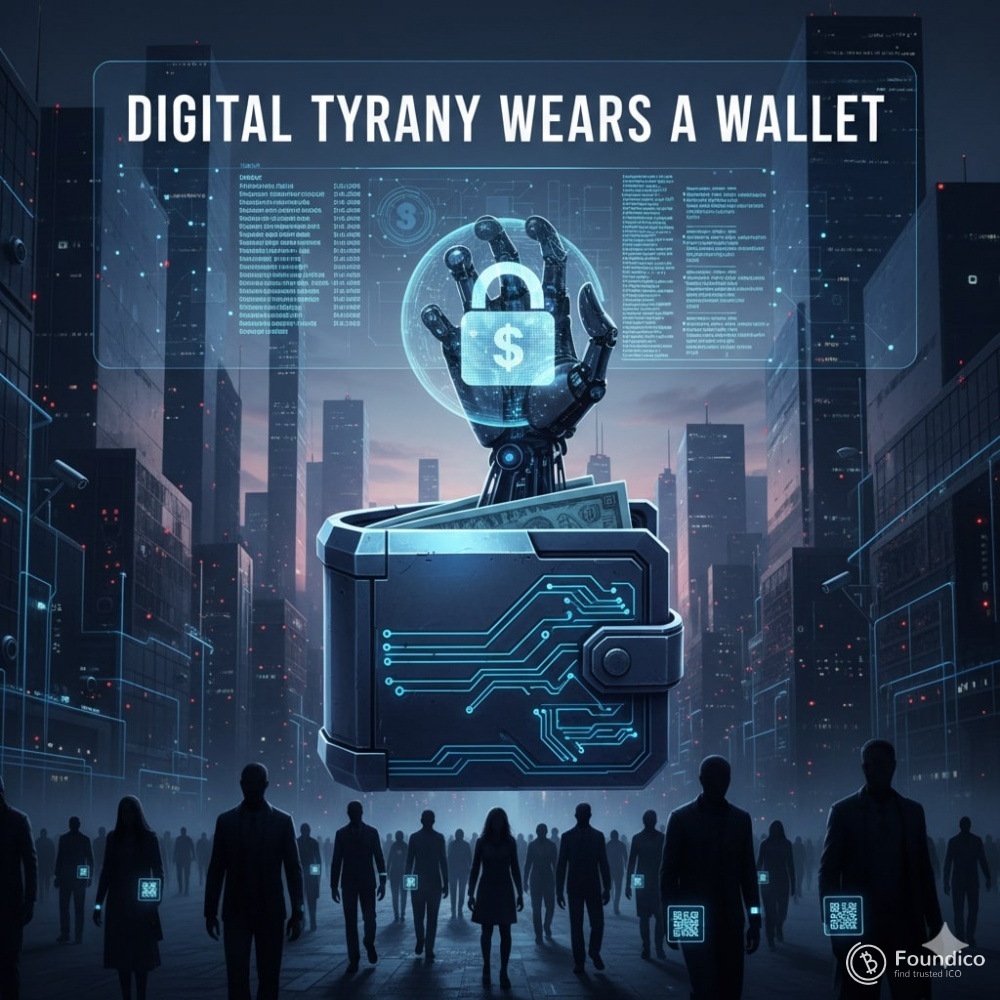By Dr. Pooyan Ghamari, Swiss Economist and Visionary
The dream of cryptocurrency was a rebellion against centralized control—a world where financial power rests not with banks or governments but with individuals wielding private keys. Yet, as the crypto ecosystem matures, a new form of tyranny emerges, one that doesn’t wear a crown or wield a scepter. It wears a wallet. In the digital age, power isn’t held by those with armies or laws but by those with code, capital, and influence. This is the face of digital tyranny, and it’s reshaping the very freedom crypto promised.
The New Tyrants
Tyranny in crypto doesn’t look like a dictator in a palace. It’s a developer pushing a protocol upgrade that shifts network dynamics, a whale dumping tokens to crash a market, or an exchange freezing accounts without warning. These are the wallet-wearers—entities whose control over code, wealth, or infrastructure grants them outsized power over the decentralized dream.
Consider the developers. They write the rules of blockchains like Bitcoin or Ethereum. A single commit to a GitHub repository can alter transaction fees, change consensus mechanisms, or redefine governance. While open-source code invites scrutiny, only a handful of insiders have the expertise and influence to steer these changes. The average user? They’re left to nod along or abandon the network.
Then there are the whales. With billions in crypto assets, these players can sway markets with a single trade. A coordinated sell-off can tank a token’s value, wiping out smaller holders. Their wallets aren’t just stores of wealth—they’re weapons, capable of bending markets to their will. And exchanges? They’re the gatekeepers, deciding which tokens live or die, which users access the market, and whose funds get locked in a sudden “compliance” freeze.
The Chains of Convenience
Why do we tolerate this? Convenience. Most users don’t run their own nodes or mine their own blocks. They rely on centralized platforms—exchanges, wallets, or custodial services—that promise ease of use but deliver control. These platforms are choke points, where a single decision can cut you off from your assets. Even decentralized protocols often hide centralized realities: governance tokens skewed toward early investors, or smart contracts with backdoors only a few can access.
This isn’t the freedom crypto promised. It’s a new hierarchy, where the wallet-wearers hold the keys to your financial autonomy. Your private key might secure your funds, but it doesn’t secure the system. The blockchain’s rules, the market’s movements, the platform’s policies—these are dictated by others. Digital tyranny doesn’t need a throne; it operates from a server farm, a trading desk, or a developer’s keyboard.
Breaking the Wallet’s Grip
The antidote to this tyranny lies in crypto’s own DNA: decentralization. But true decentralization demands more than holding a private key. It requires active rebellion against centralized points of control. Run your own node to validate transactions. Use decentralized exchanges to trade without intermediaries. Support protocols that prioritize user governance over developer fiat. These acts aren’t just technical—they’re political, a refusal to bow to the wallet-wearers.
And when the system resists change, there’s a sharper tool: the fork. A hard fork is a declaration of independence, a way to reject the rules imposed by developers or the manipulations of whales. Bitcoin Cash, Ethereum Classic—these were born from communities unwilling to accept the status quo. Forking isn’t just a technical act; it’s a rejection of tyranny, a chance to build a chain where wallets don’t rule.
The Cost of Complacency
Staying passive has a price. Every upgrade you accept without question, every centralized platform you rely on, tightens the grip of digital tyranny. The wallet-wearers thrive when users prioritize convenience over control. The more we delegate our power—whether to developers, exchanges, or influencers—the more we entrench a system where a few wallets hold sway.
A Vision for Freedom
Crypto was meant to dismantle hierarchies, not create new ones. To defeat digital tyranny, we must reclaim the tools of sovereignty. Run nodes, fork chains, build communities. Platforms like X can amplify your voice, rallying others to challenge the wallet-wearers. The power of crypto lies not in its markets or its tech but in its ability to empower the many over the few.
Digital tyranny wears a wallet, but it’s not invincible. Every node you run, every fork you support, every centralized service you abandon is a strike against it. The blockchain is yours to shape—if you dare. Stop being a subject. Start being a sovereign.
Dr. Pooyan Ghamari is a Swiss economist and visionary, exploring the intersections of technology, finance, and human freedom.

 Pepenode - Pepenode is a utility meme coin token designed to power the Pepenode ecosystem, a gamified virtual mining platform for meme coins
Pepenode - Pepenode is a utility meme coin token designed to power the Pepenode ecosystem, a gamified virtual mining platform for meme coins